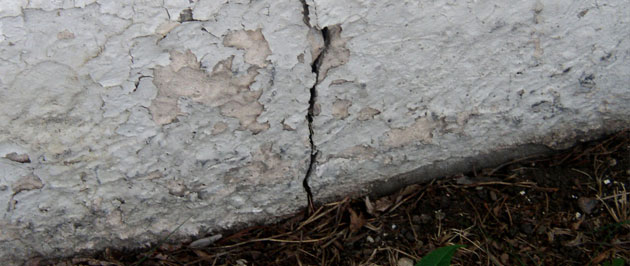No one wants to be told that they have cracks in their foundation, but truth be told, no one is immune from foundation cracks. It’s true that your foundation can develop cracks during any season, but the winter is when most homeowners first notice problems. The environmental changes that come with winter make your foundation more prone to damage.
- Why is winter so damaging for foundations?
- There is an easy scientific explanation for why so many homeowners experience foundation cracking during the colder months, and it is known as frost heave. Simply put, frost heave happens when freezing water expands and puts extreme pressure on your foundation. It is one of the top reasons for foundation cracks to form.
- How can you protect your home from frost heave?
- The easiest way to prevent cracking due to frost heave is by protecting your home in advance. You want to try to eliminate all the places where water can enter your foundation. Finding and sealing all existing cracks is a must.
Your foundation probably already has a few cracks. While many of them may not pose a structural concern, they can still allow water to enter. Here are a few ways to treat the most common types of cracks.
- Hairline Cracks
- Some of the smallest hairline cracks don’t pose a water concern, but you must seal them before they get any larger. This is a job that you can easily complete on your own. Simply fill these small cracks with some masonry caulk. Use enough caulk to completely cover the entire length of the crack.
- Leaking Cracks
- If you notice a crack is weeping, then you need to remedy the situation as quickly as possible. These cracks are a prime location for frost heave. It’s best to hire a professional to repair these wet cracks for you. If you attempt the job on your own, you may only camouflage the situation instead of correcting it.
- Structural Cracks
- The most damaging foundation cracks are the ones that cause actual structural damage to your home. Signs of structural cracks include doors that are difficult to close or windows that no longer seal properly. Only a professional technician can properly repair these cracks. Ignoring them will only lead to more foundation damage later on.
- No matter how benign a crack may seem, any noticeable crack in your foundation should be filled in order to avoid even more cracking. Be sure to schedule an inspection by a foundation expert to get a full report on the integrity of your foundation.

